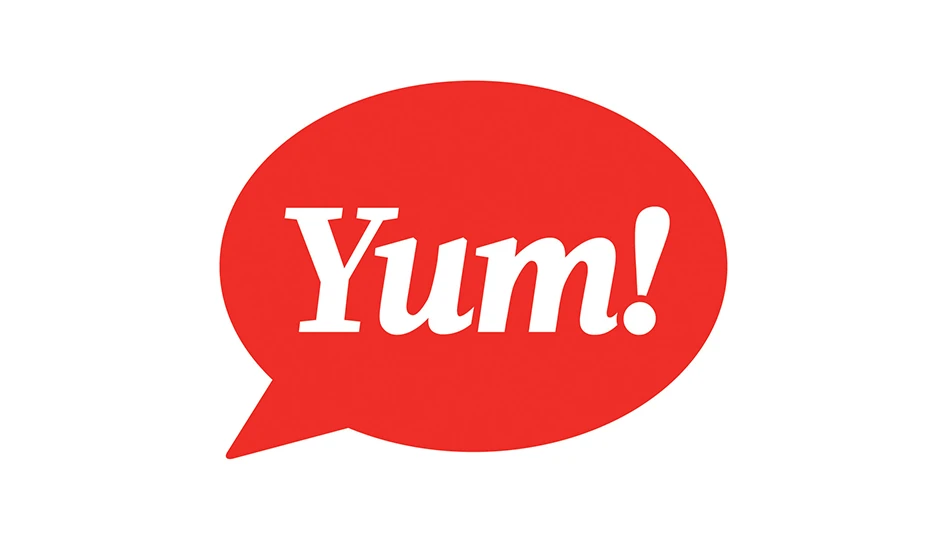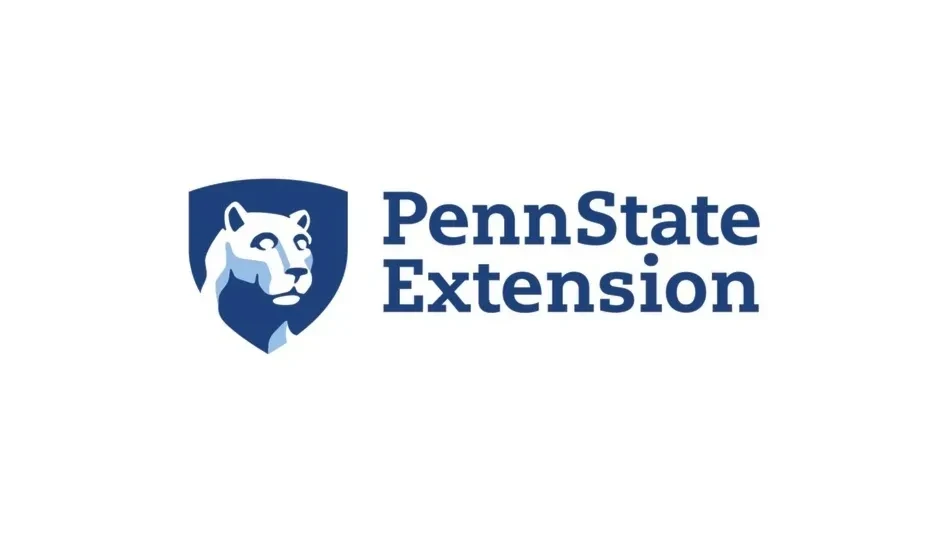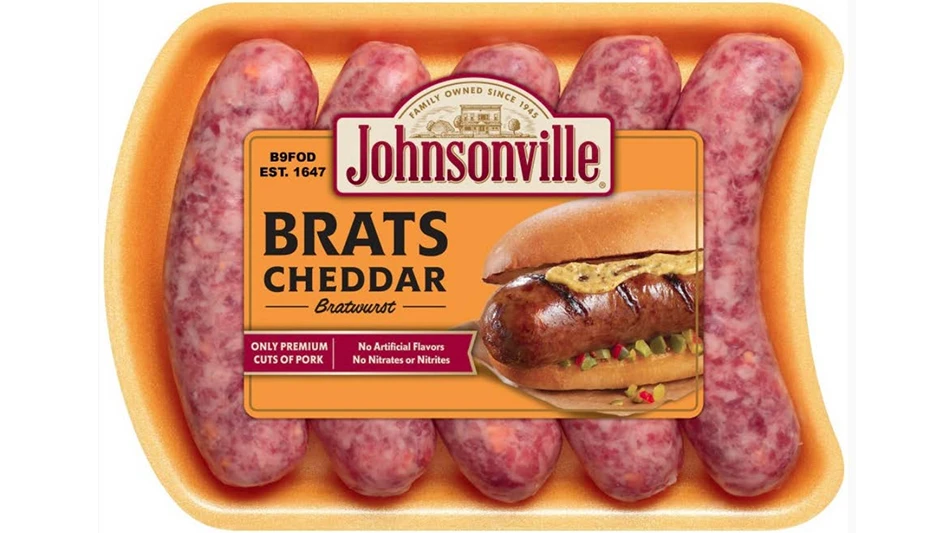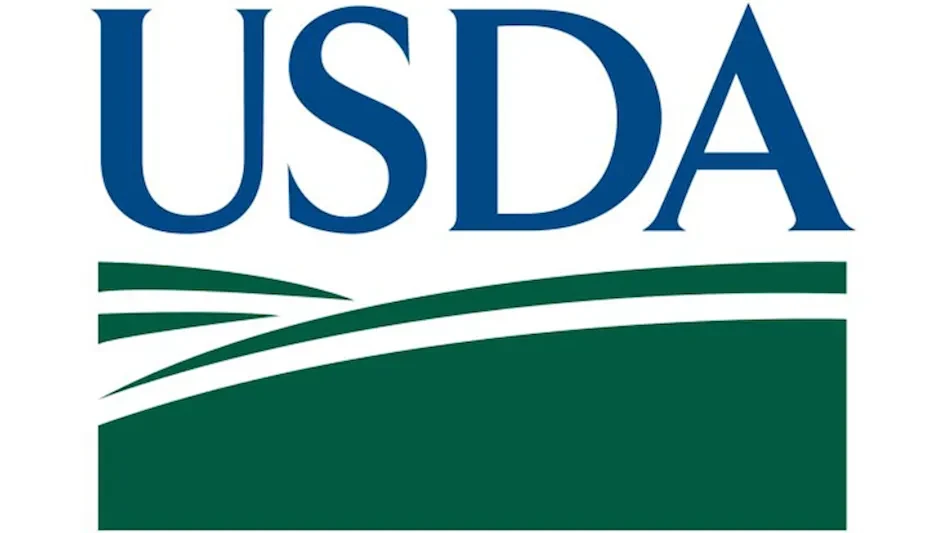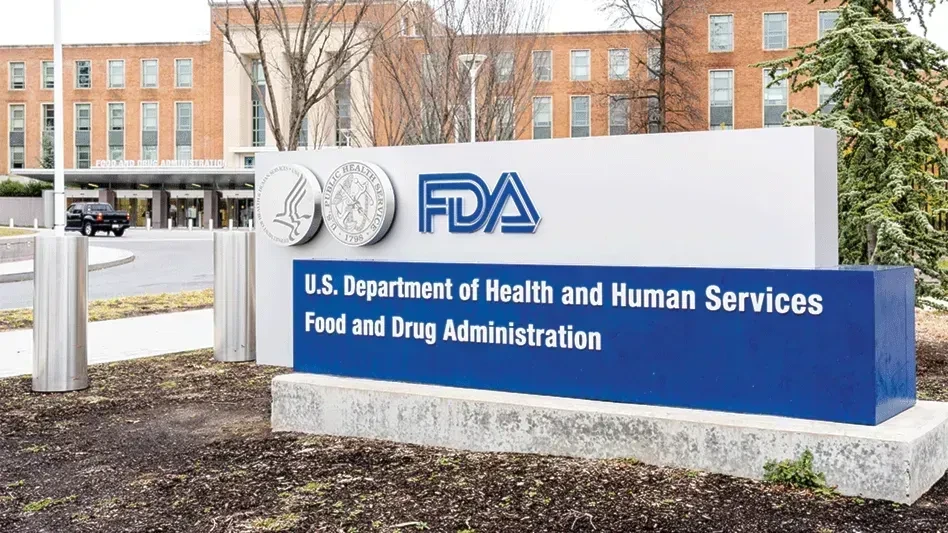IAFP Draws 1,700 Attendees; Yiannas Assumes Presidency
DES MOINES, IOWA – Attendance at IAFP 2006 in Calgary, Alberta, Canada exceeded 1,700 attendees, including food safety professionals from 35 countries, 47 states, and eight Canadian provinces. Dr. Arthur Liang, acting associate director for food safety, National Center for Zoonotic, Vectorborne, and Enteric Diseases, Centers for Disease Control and Prevention, Atlanta, Ga., opened IAFP 2006 with the Ivan Parkin Lecture entitled " A Progress Paradox: If We Have the Safest Food Supply, Why am I Working So Hard? "
IAFP 2006 featured a well-diversified program of more than 500 presentations including 26 symposia, three roundtables, 80 technical and 350 poster presentations. The John H. Silliker Lecture entitled "Rising From the Ocean Bottom – The Evolution o f Microbiology in the Food Industry" featured Dr. William H. Sperber, senior corporate microbiologist, Cargill, Inc., Wayzata, Minn. Representatives from 115 companies exhibited equipment and the latest innovations in food safety services.
In other convention news, Frank Yiannas, health and safety director for Walt Disney World Co., assumed the presidency of the non-profit organization representing more than 3,000 food safety professionals. Yiannas oversees all food safety programs and public health functions for Walt Disney World, including major theme parks and resorts, two cruise ships, two water parks, and hundreds of the world’s busiest food locations. More than 15,000 Food and Beverage employees, hundreds of food suppliers, and a number of critical regulatory compliance issues also come under his purview.
Since joining Disney in 1989, Yiannas has expanded Disney’s program beyond testing and inspections by creating leading-edge risk management strategies. Under his tenure, Disney has been recognized as a pioneer in food safety training, implementing HACCP at the food service level, developing hand-held computer technology to conduct food safety audits, and utilizing progressive microbial testing approaches.
In addition to his role as IAFP President, he is the immediate past Chair of Council I, Laws and Regulations, of the Conference for Food Protection (CFP), and serves on the Food Allergy and Anaphylaxis Network’s Board of Directors. Yiannas is a Registered Microbiologist with the American Academy of Microbiology. He holds memberships with several professional associations, including the National Environmental Health Association, the American Society of Microbiology, and the Institute of Food Technologists. He received his BS in Microbiology from the University of Central Florida and his Master of Public Health (MPH) from the University of South Florida. In addition to Mr. Yiannas, other members of the Executive Board include:
• President-Elect — Gary Acuff, Ph.D., Texas A&M University, College Station, Texas
• Vice President — J. Stan Bailey, Ph.D., USDA-ARS, Athens, Ga.
• Secretary — Vickie Lewandowski, M.S., Kraft Foods, Glenview, Ill.
• Past President — Jeffrey M. Farber, Ph.D., Health Canada, Ottawa, Ontario, Canada
• Affiliate Council Chairperson — Maria Teresa Destro, Ph.D., University of São Paulo, São Paulo, Brazil
IAFP 2007 will be held in Lake Buena Vista, Fla., on July 8-11, 2007.
Brooks Named COO of Food Safety Net Services
SAN ANTONIO, TEXAS – Dr. Scott Brooks, formerly senior director of quality and regulatory affairs for E&J Gallo, has been named chief operating officer (COO) of Food Safety Net Services. Brooks is a veteran of the food industry having previously served as senior manager of food safety and quality assurance for Taco Bell Corporation/Yum! Brands, and active and reserve military duty as director of food safety programs for the U.S. Air Force. FoodSafety Net Services offers a variety of laboratory and consulting services to food processing professionals.
Sulfuryl Fluoride MRLs Adopted by Codex
INDIANAPOLIS, IND. – ProFume® gas fumigant has taken a critical step toward international recognition as a viable alternative to methyl bromide. The adoption of maximum residue limits (MRLs) by the Codex Alimentarius Commission for its active ingredient sulfuryl fluoride enables the export of commodities around the world that have been fumigated with ProFume.
The Codex Alimentarius Commission was created by the Food and Agricultural Organization and the World Health Organization to develop food standards and guidelines for protecting consumer health, ensuring fair trade practices and promoting coordination of international food standards.
Codex standards are recognized by the World Trade Organization as critical reference points for international trade. What is ordinarily an extensive, multi-year process of standard development by Codex was accomplished in 30 months due to the growing importance of sulfuryl fluoride as a methyl bromide alternative, according to a Dow AgroSciences press release. Methyl bromide is being phased out under the Montreal Protocol, due to its ozone-depleting characteristics.
"This news is important for international food processors that export their commodities throughout the world," said Dan Jenkins, Dow AgroSciences product technology specialist for ProFume. "The phase-out of methyl bromide meant that an economical and technically viable alternative was needed, and since Codex has adopted sulfuryl fluoride MRL’s, ProFume® gas fumigant can more fully serve the food-processing industry as an alternative."
A draft final report of the 29th Session of the Codex Alimentarius Commission, which includes information on sulfuryl fluoride tolerances, can be found on the Codex Web site at http://www.codexalimentarius.net/web/index_en.jsp.
Stored Pests Target
of High-Tech Snooping
BELTSVILLE, MD. – To keep insects away from stored products such as grains and cereals, nuts, dried fruits, and botanicals, the managers of food processing plants and warehouses usually rely on chemical insecticides and fumigants. Pest control operators and quality assurance professionals who apply these treatments typically focus on finding out when and where pests are likely to be found — which isn’t as easy as it sounds.
Now, through a collaborative effort between Agricultural Research Service scientists and Orkin Commercial Division in Atlanta, Georgia, a new monitoring method has been developed. It uses a combination of trapping and spatial analysis to locate the moths and beetles, and their larvae, that can contaminate and damage stored food products.
Spatial analysis procedures show the relationship between the number of insects trapped in a specific time period and their proximity to the infestation source. The data collected are entered into a computer that can construct contour maps that flag insect population centers needing treatment. The maps document pest number and movement and also demonstrate the effectiveness of control tactics to quality assurance, sanitation and pest control personnel. The new monitoring method could prove to be a valuable tool in controlling stored product pests.
TUV America Awards Sparboe Safe Quality Food Certification
DANVERS, MASS. – TUV America Inc. recently announced that its Management Services division has certified the Colorado facility of Sparboe Farms, one of America’s largest marketers and producers of shell eggs and egg products, to the Safe Quality Food (SQF) Program’s SQF 2000 Code. The scope of the certification is as follows: Product for Hen Eggs and Egg Processing.
Sparboe Farms’ certification marks the first SQF certification awarded by TUV since it received accreditation from the American National Standards Institute (ANSI) to SQF Program in March of 2006. SQF 2000 certification is a Hazard Analysis and Critical Control Point (HACCP) Supplier Assurance Code for the Food Industry.
The SQF Program is a complete certification program for managing food safety and enhancing quality systems throughout the food chain, managed by the Safe Quality Food Institute (SQFI), an organization that is owned and operated by the Food Marketing Institute (FMI). The SQF Program provides two standards based on the type of supplier. The SQF 1000 Code is designed for primary producers while the SQF 2000 Code is designed for the manufacturing and distribution sectors – both codes are based on the Hazard Analysis and Critical Control Point (HACCP) method and principles.
"Our business has one primary purpose: to serve our customers," said Brian Joyer, quality manager for Sparboe Farms. "From start to finish, comprehensive quality control is the key to the outstanding food safety and quality of Sparboe Farm Eggs. We believe SQF 2000 certification, from TUV America Inc., a Registrar at the forefront of pioneer efforts for food safety initiatives in the U.S., further demonstrates that we take the highest control of quality, consistency and food safety from hen feeding to final egg delivery very seriously."
"As one of only three Registrars in North America accredited by ANSI to perform SQF 1000 and 2000 audits, accreditation to SQF demonstrates TUV America’s ongoing commitment to food safety initiatives and to help companies maintain compliance with government regulatory bodies. We are pleased to award SQF 2000 certification to Sparboe Farms who exhibits the highest level of dedication to meeting quality standards through responsible solutions, dedicated customer service and a complete offering of the highest quality products," said Calin Moldovean, director, management service, TUV America Inc.
Stored Grains Are Singing
BELTSVILLE, MD. – Each year, more than $1.5 billion worth of U.S. wheat and other grains must be downgraded or discarded because of postharvest damage by insect pests. Despite preventive measures, insects such as rice weevils and lesser grain borers still manage to find their way into grain storage facilities.
Now an acoustics-based grain sorter has been devised that can distinguish between "clean" wheat kernels and those that have been tunneled through and spoiled by hungry insects. It relies on a special microphone that can pick up ultrasonic sounds at exceptionally high frequencies. A private-sector partner is being sought to bring the technology to market. QA
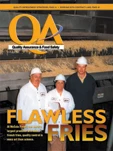
Explore the October 2006 Issue
Check out more from this issue and find your next story to read.
Latest from Quality Assurance & Food Safety
- Ferrero Group Invests $445 Million in Ontario Production Facility
- Nelson-Jameson Announces Grand Opening for Pennsylvania Distribution Center
- Taylor Farms Linked to Romaine E. coli Outbreak as Marler Clark Files Multiple Lawsuits Against Supplier
- IAFNS Announces Winners of Emerging Leader Awards for Food Safety, Nutrition
- FDA Shares Testing Results for PFAS in Bottled Water
- Provision Analytics Adds Food Safety Expert Jennifer Williams to Strategic Advisory Group
- Boston Sword & Tuna Protects Seafood Safety with Mettler-Toledo Metal Detectors
- IFT Releases New Resources to Aid Food and Beverage Industry in Sugar Reduction
